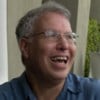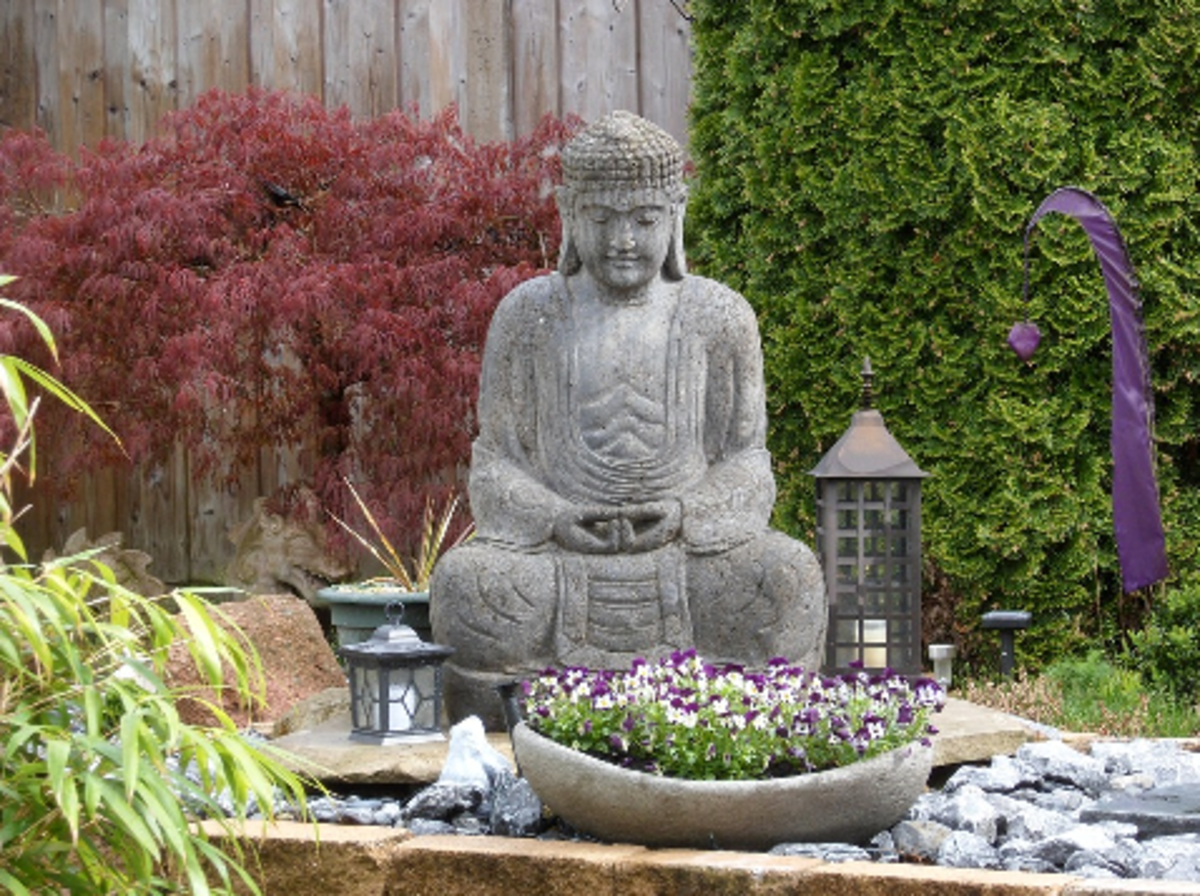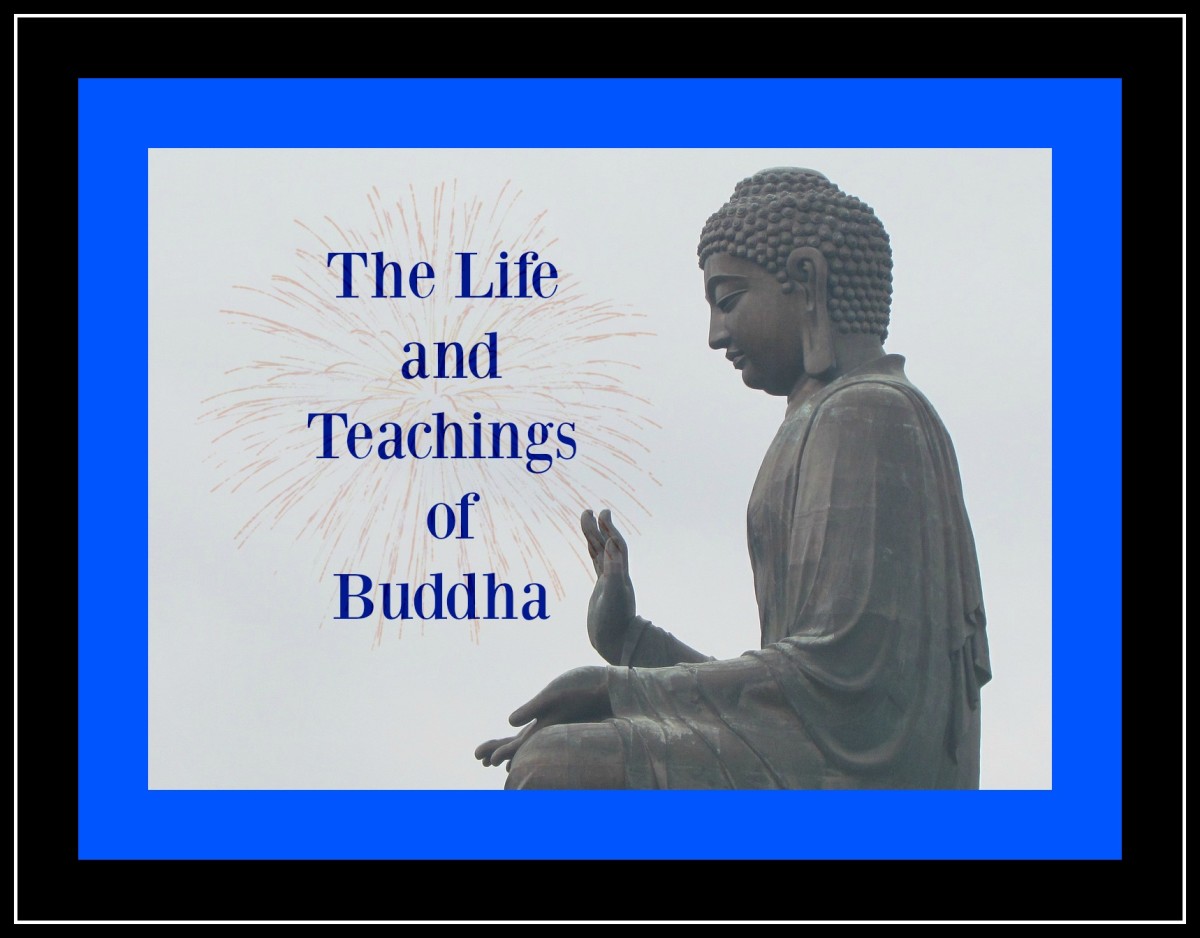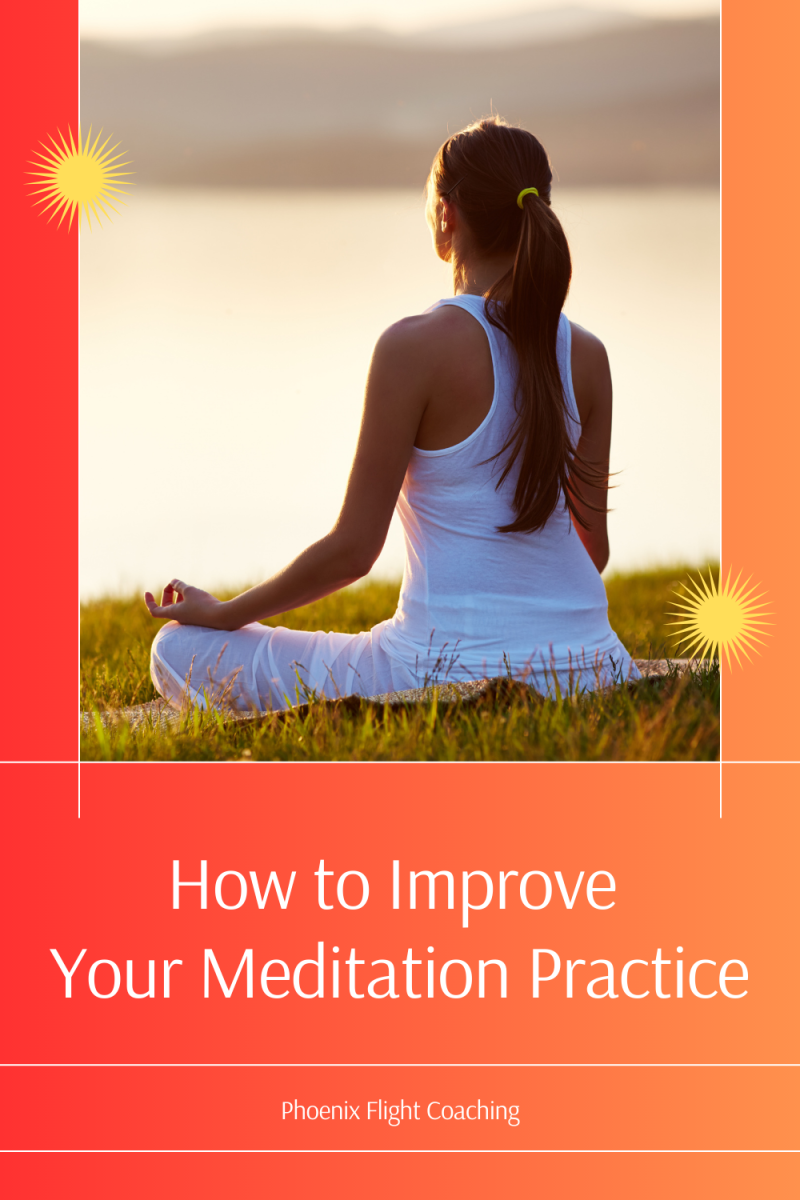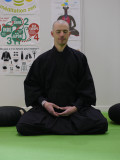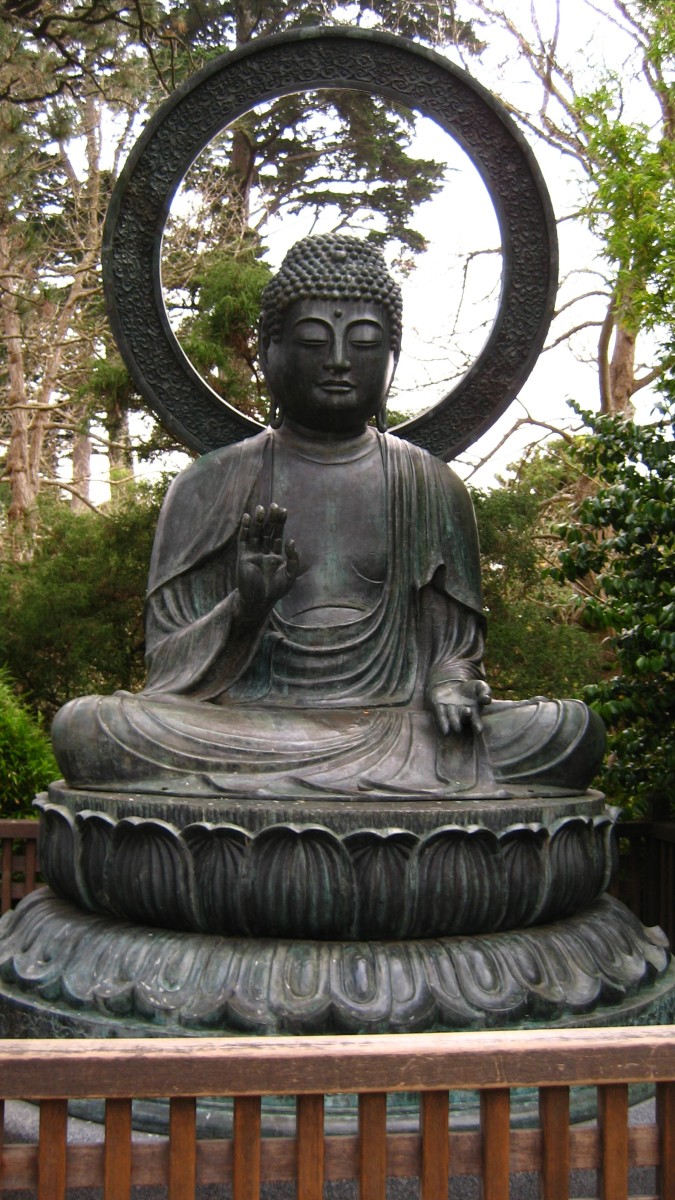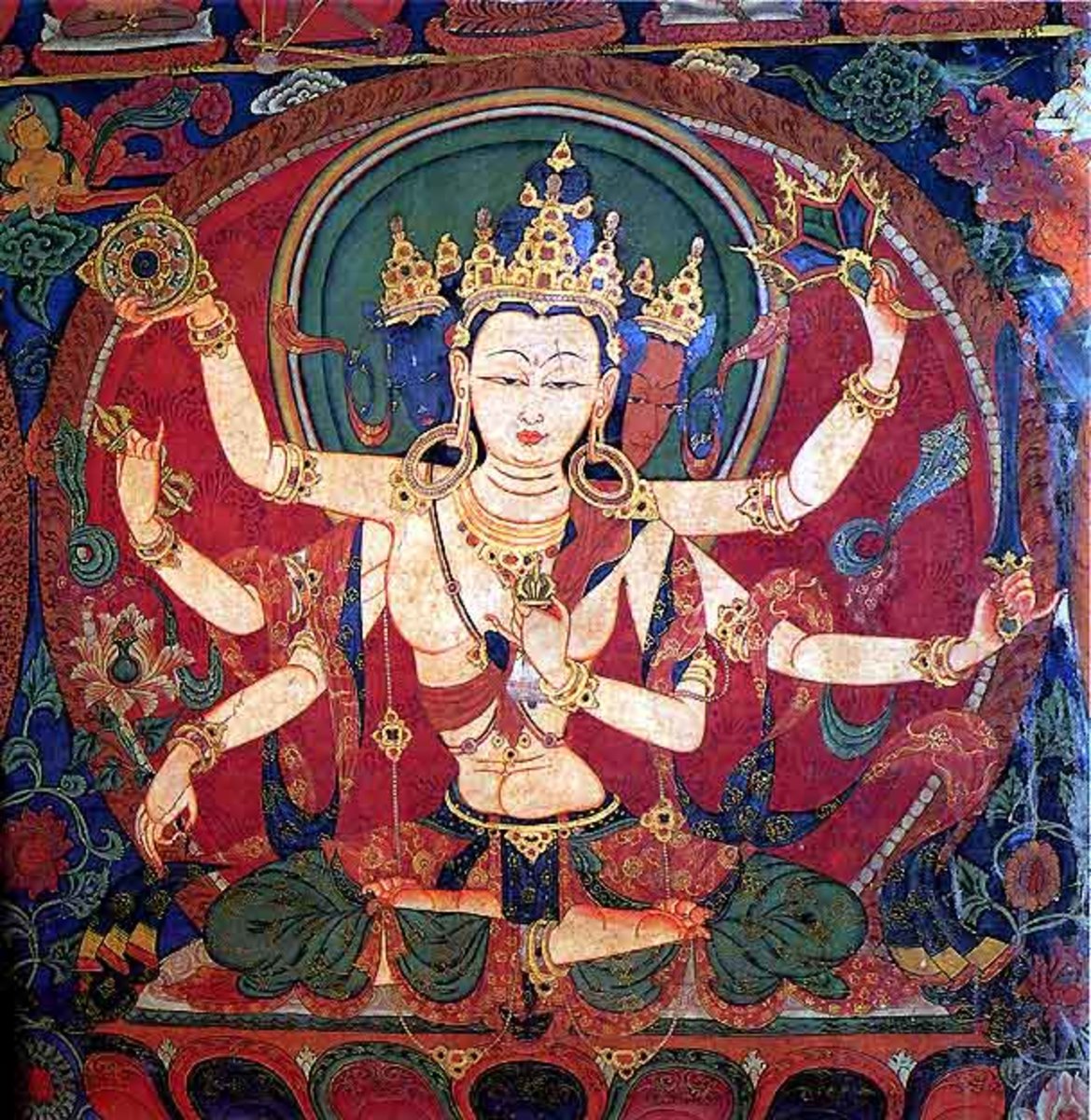Seeing True: Insight, Foresight, and Hindsight
Table of Contents
- Meditation: practice and insight
Zen meditation leads to wonderful gifts of insight - Insights small and large
Small insights solve small problems. Big insights can change our lives. - Foresight and far-sight: Do we gain magical powers through meditation?
There is no magic in meditation. If we see clearly, it is through loving, caring, and having a clear mind. - Healthy Hindsight
Seeing the past without blame or guilt, we make better choices for today and tomorrow. - Seeing clearly, loving deeply
With a clear mind, we can see clearly and love deeply. It's all about healing and helping.
Meditation: practice and insight
Classic Buddhist meditation consists of two forms: Mindfulness (which I like to call Loving Awareness) and Concentration, for which the classical Sanskrit word is Dhyana. And, in Japanese, Dhyana is prounounced Zen.
A major purpose of the practice of Zen is to open the door to insight. The purpose of all Buddhist life and practice is the elimination of suffering. And insight is a powerful tool we can use to eliminate suffering.
When we practice meditation, we practice seeing things as they are. We are practicing "seeing all things with the eyes of love" (that's an ancient Chinese Buddhist line); we are practicing non-attachment, that is, seeing without subjective bias.
When people practice, we get better at whatever we do. As we practice meditation, we get better at seeing, insight becomes possible.
Insights small and large
Insights come in many sizes, and solve problems of different sizes.
For example, let's say that I've been getting an uncomfortable rash. I sit in meditation and relax. I feel the rash, and remember when it has come up. Then I realize it only comes up on days I eat chocolate. In a moment, I see: I'm allergic to chocolate! That's an insight.
Insights give us freedom of choice. Now, I know: I can eat chocolate and itch, or I can not eat chocolate, and not itch. In Buddhism, there is nothing magical. We simply develop understanding through insight, then choose that which leads to not suffering. (For me, that means not much chocolate. Bummer!)
This same practice of sitting and being aware of suffering can lead to larger insights. Maybe there is some emotional habit, or way of speaking, that is damaging a relationship. And it can also be used to solve life problems. These are larger insights.
Even bigger insights generate what psychologists call "Aha! moments." Stephen Covey, in 7 Habits of Highly Effective People, calls them "paradigm shifts." A framework or paradigm is a way we see the world. It is a view, a way of believing, yet we are largely unaware of it. An "Aha! moment" or paradigm shift is where we see what we've been believing all along for the first time and gain the freedom to make a different choice.
Suppose I had a difficult childhood, and never got to do what I wanted to do. My bigger brothers always chose what game we played. My parents were rushed and didn't listen well. I was often sick. I might have internalized a belief like, "I can never do what I want to do. I don't even know what I want to do." Years later, I have writer's block. But I stay with it. I try to write, and I listen within. All of a sudden, I remember being a child and often saying "I'm bored, I don't know what to do." Compassion pours forth for that child I was. I see that the idea that I don't know what to do became a core belief, limiting me. I let it go, and the writer's block lifts. From that moment forward, either the block does not come back, or, if it does, I can engage the wisdom and compassion to shift and come from a new place, and keep writing. That is an example of a deep insight that can free up creativity, heal illness, and transform life or relationships.
There is an even deeper level of insight. It is hard to talk about. Sitting in deep Zen meditation, concentrated, in a place of just sitting, aware, with the thinking mind stopped, it can happen. (Actually, it can happen any time, but a quiet mind makes it more likely.) An event occurs where we are not separate from all that is. We see ourselves not as a separate particle, but as a wave in the flow of the Universe. This is the Awakening Event, classically called the Enlightenment Experience. If that event happens in a person's life, and he or she integrates it, that is what Buddhists call Enlightenment, or, more accurately, Awakening. Once that event is integrated back into ordinary life, it becomes much easier to let go of attachments (unhealthy desires; fear and anger; disconnection and avoidance) and to live a life where we feel and share joy and peace.
So insight (in Sanskrit, Vipassana) is a core step that arises from Buddhist or Zen meditation practice, and can be used as part of the process of eliminating both practical and spiritual suffering. Working with our insights, we can heal illness, relieve emotional distress, solve practical problems, improve relationships, and become spiritually more peaceful and loving. With practice, small insights can become a frequent occurrence; medium sized ones happen often; big paradigm shifts occasionally; and Awakening Events more than once.
That's insight. What about foresight and hindsight?
Foresight and far-sight: Do we gain magical powers through meditation?
People who meditate a lot certainly do seem to have special gifts. For example, people often say to me, "Sid, you told me that would happen, but I didn't believe you. But it did. How did you know?" Occasionally, people experience that I seem to know what they are thinking or feeling.
I'm not going to claim any magical powers here. One teacher said, "I can hear what you are thinking because you are thinking so loud!"
Most of the time, when people think I've done something special, I know it's not true. I simply am sharing the benefits of a quiet mind. I listen with no thoughts of my own. I look without distraction, and notice things. Paying attention closely, I naturally pick up what is going on. Often, that can seem like mind-reading. But it's not; it's just the result of loving attention.
As for seeing the future, that is also not magical. It is simply a gift arising from having a mind free of distracting thoughts and limiting beliefs. I notice details that other people don't notice. And I see patterns. Maybe I see that, every time a friend visits her father when she is tired, they argue. So I say, "please get some rest and don't see your father when you're tired. I know how much it hurts when the two of you fight." But she is rushed and busy, and thinks her father needs her. She goes, and the argument happens. She might think I foresaw the future. But no, I just looked deeply at the present. Most people fall into the same pattern again and again. Watching them, for me, is like watching a boulder roll downhill. I know it's going to keep going until it gets to the bottom.
So most, and perhaps all, of what spiritual practitioners can do is nothing special. Meditate, and, with an open and loving mind, you too, can have foresight - the ability to see the future, and far-sight - the ability to see what is in the minds and hearts of others.
I am not saying that there are no special powers. In fact, I don't make "special" and "not special" as categories. Anything anyone can do is a gift. My friend Vic is a better cook than most; that's a gift. Some people's presence is very healing or comforting; that's a gift.
In Buddhism and Hinduism, special powers are called siddhi. Whether they exist or not is not important. Three things are important, though:
- If you have special powers, use them only for love and healing, only for the good of all.
- Do not use them in a way that makes other people depend on them. People are best off developing their own skills and discovering power within themselves.
- Do not become attached to these powers and form an identity around them.
If you think about this, the same rules apply to gifts and skills that are not magical at all. What is good with special powers, if they exist, applies to my friend Vic's cooking, as well. First, my friend Vic will be best off if he uses his good cooking to share joy, not just for himself, and not to impress people or show that he is better than others. Second, it is good for me to enjoy Vic's cooking, but not if I rely on it and stop cooking myself. Best of all is that I keep cooking, and, inspired by his recipes, get better at it. Third, if Vic feels he has to cook to be a good person, and then ends up working double shifts to make enough money, and has no time to cook, that will not be healthy.
So, let us appreciate our gifts and use them for everyone's benefit, but not let others rely on them too much, and not get attached to them.
That talks about foresight and other gifts of seeing the present and future deeply. What about seeing the past?
Healthy hindsight
Hindsight is our ability to look back at the past. But, in the Sutra on the Better Way to Live Alone, the Buddha teaches that we must not get lost in the past. Dwelling in guilt or blame is not healthy. Remembering past successes is not doing what we can do today. Even nostalgia can go too far.
Also, it isn't helpful to be good at telling other people what they could have done better.
Healthy hindsight is about ourselves, and about us right now in the present.
When we see that what we did in the past was harmful, and choose not to do it again, that is what Buddhism calls useful guilt. When we see why we did it, so that we are freer not to do it again, that is insight about the past. That is the most healthy hindsight of all.
We can also see that, when we have done something good in the past, it is good to do it again. I used to cook a lot. Then my wife got a job where she got home earlier than I did, and I left the cooking to her. One day, in hindsight, I remembered that I liked to cook. It was hard, but I reconnected with my joy of cooking. Now, it is an important part of my life.
So, let's use our hindsight to make today a better day, and to build a future.
Seeing clearly, loving deeply
So, it all comes down to practice.
One of my coaches, Kim George, says that we are always evolving. What we spend time doing, we choose to evolve. If we spend time feeling anxious and wasting time, we get better and better at feeling anxious and wasting time. I had a great aunt like that. She spent years being afraid and alone and angry, and got so good at it she couldn't get out of it.
But if we practice mindfulness meditation (loving awareness) and dhyana, or Zen concentration, we get good at seeing everything just as it is. When we see ourselves as we are, that's insight. And insight frees us from suffering small and large. The largest freedom is to see that we are connected to everything. From that point forward, love and wisdom make a lot of sense, and we open up to them more deeply and more fully.
With a clear mind, we can see clearly and love deeply. Our foresight can help us prevent suffering, and give others a choice to prevent suffering for themselves. Our attention and compassion can help them feel loved, understood and safe. In that safety, they are more ready to practice their own loving awareness, have their own insights, and improve their own lives.
We can use hindsight to learn not to repeat the same mistakes, and to cultivate our best qualities, so that we are more of a gift to the world.
There is an image in Buddhism of the Awakened Eye, or All-Seeing Eye of the Buddha. I believe that we can open this eye. I believe that, when we practice Love so deeply that we no longer want to harm or hurt anyone, that this eye opens. With this eye open, we can see near and far. We can see whatever is useful to see, whatever will help us love and protect ourselves and others. Let us live Awake, healing and helping.
